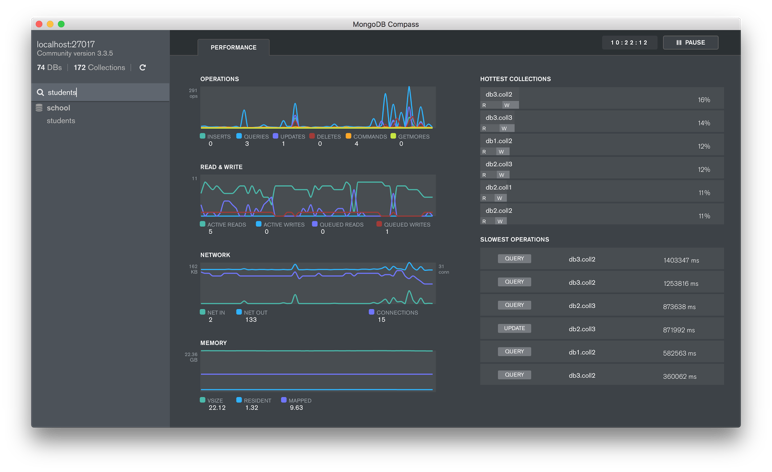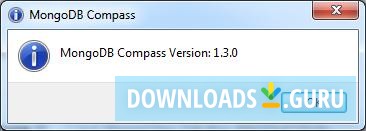

Plus, the repo is now open-source on GitHub.
#Mongodb compass update query free
MongoDB recently announced that the fully featured Compass GUI is completely free for everyone to use. It’s platform-agnostic and provides a graphical view of your database without the need to use a query language.

The creators of MongoDB (Mongo) have their own GUI called Compass. (Image courtesy of MongoDB Compass GitHub Repository) The best one for you will depend on the scope of your project, the features you need, and your budget. Each has features that set it apart from the rest. Relational database to MongoDB data transfer: Automate tedious and error-prone data transfers between database types.īelow is an opinionated list of the best MongoDB GUIs on offer in 2022.Server and query analytics: Insights into query and server performance.An aggregation framework: Build queries out step-by-step, test along the way, then export into usable code.Query autocomplete: Auto-suggestions for collections, fields, methods, and operators.A visual query editor: Click or drag-and-drop elements to create queries.The best MongoDB GUIs share similar features: MongoDB GUIs provide a user interface for your MongoDB database that gives you the ability to visualize data and edit queries without the use of shell commands (or with them - more on that later). It’s definitely possible to query your Mongo data exclusively from the command line, but if you’re working with even medium-sized datasets, GUIs offer a helpful alternative. Traversing objects and writing long queries in the command line can get annoying fast, so using the shell is usually best for quick peeks or admin tasks. It’s included in the MongoDB Server installation, so you’re all set as long as you’re comfortable with shell commands. The most basic way to access MongoDB is through the mongo shell you can use it to query, update data, and complete admin tasks. Working with MongoDB through the command line isn’t exactly a cakewalk: This post will walk through the best MongoDB GUIs available for reading from and writing to your MongoDB clusters. You’re going to need to parse data for your front-end eventually, and with document DBs, your data is already stored in the right format (give or take a. MongoDB went public in 2017 and is worth more than $30 billion today.ĭocument DBs work through nested key-value pairs instead of relational tables and columns. What makes MongoDB and other NoSQL DBs attractive is flexibility instead of being held to a rigid schema that scales vertically, you can evolve your schema as you grow and scale horizontally. It mostly doesn’t affect queries that use indexes whose fields are never modified after the document is originally inserted.MongoDB is a NoSQL database that more than a quarter of developers use in some capacity.It doesn’t affect queries which explicitly do a single value equality match on all fields used in the index key.This issue doesn’t affect queries that don’t use an index, such as queries that just look up a document by ID.Then a write which changes a document from “country France, city Paris” to “country France, city Bordeaux” while the query is currently scanning “country France, city Nice” will miss that person. One of our services periodically polls the database and reads the list of running containers with the query containers.find() Containers have a variety of states, like “starting”, “healthy”, “unhealthy”, and “stopped”. We store a lot of data in our MongoDB databases, including the state of all of the containers we’ve run. These days, my main job is building the backend of the Meteor Galaxy hosting service. Specifically, if a document is updated while the query is running, MongoDB may not return it from the query - even if it matches both before and after the update! If you use MongoDB, you should be aware of this subtle edge case and make sure your queries don’t fall victim to it. Recently, I was surprised to find that this isn’t always the case for MongoDB.

When I query a database, I generally expect that it will return all the results that match my query. MongoDB queries don’t always return all matching documents!


 0 kommentar(er)
0 kommentar(er)
